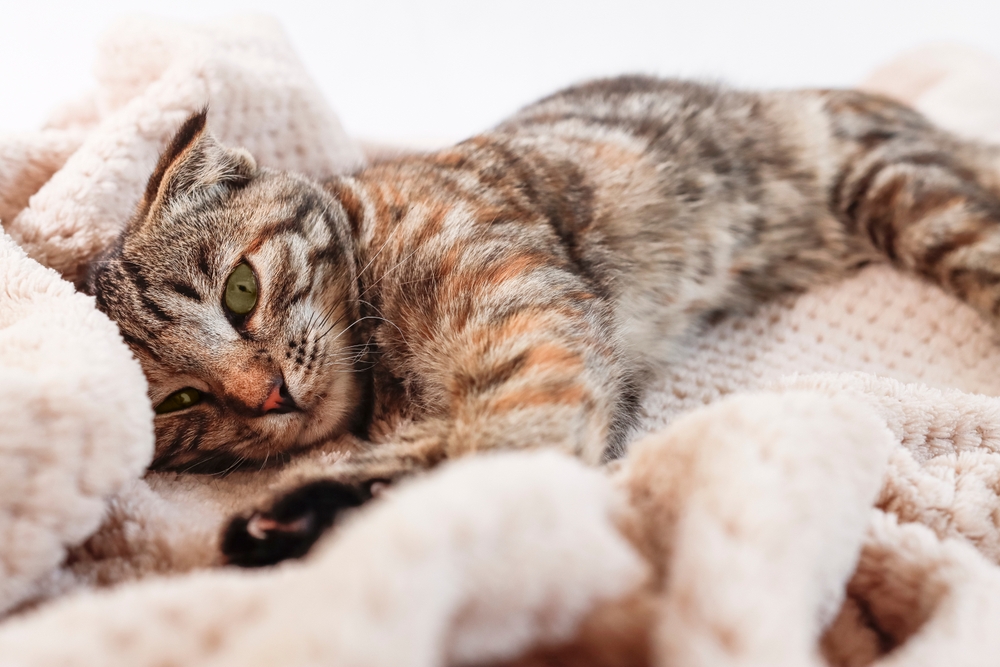Feline Leukemia Virus (FeLV) is an easily spread retrovirus that is a common disease among the cat community. It can be spread through casual contact, sharing of food dishes, cross grooming, etc. Since it’s a retrovirus, it could exist silently inside a cat’s genome for a long time. This makes it hard for the cat’s immune system to clear it completely.
Roughly 2-3 percent of cats have FeLV, so knowing how to keep your cat safe is important. The team at Union Lake Veterinary Hospital is here to teach you about FeLV and how to protect your cats from the disease.
How Feline Leukemia Virus Affects Cats
Feline Leukemia Virus is classified into three stages. These are:
- Abortive: During this phase, the virus replicates within a cat’s body. Most cats show no symptoms of the virus at this stage, and some with strong immune systems will clear it completely.
- Progressive: During this stage of the virus, it has traveled to the lymph nodes and the gastrointestinal system. This means those cats are now contagious and can spread the disease through saliva and feces. Infections develop in the bone marrow, and cats will experience other illness side effects of the disease.
- Regressive: The regressive phase is considered a type of recession. Cats with regressive FeLV don’t usually have any symptoms of the virus and usually cannot spread it. Some cats who enter this phase never have issues again, but others will move back into other phases.
Since Feline Leukemia Virus can suppress the immune system, infected cats are often at a much higher risk of developing other health issues or getting parasites.
Symptoms of Feline Leukemia Virus
FeLV can mean various health issues in cats, so symptoms can vary or be completely absent. Since it affects the immune system, it makes cats more susceptible to other diseases. In general, the following symptoms can be signs of the presence of the virus:
- Diarrhea and vomiting
- Swollen lymph nodes
- Yellowing in the eyes or the mouth
- Difficulty breathing
- Issues with the reproductive system
- Stomatitis
- Unhealthy coat
- Lethargy
If you notice any of the above, it is important to schedule a visit with your veterinarian. While some cats can live normal, happy lives with the virus, others will have serious health complications that could be fatal. Kittens, seniors, and immuno-compromised cats can be especially susceptible to FeLV and its side effects.
Preventing Feline Leukemia Virus
There is currently no treatment for FeLV, although symptoms can be treated with medications. The best way to protect your cat from the disease is to prevent infection. The Feline Leukemia Virus vaccination (now considered a core vaccine) can significantly lower a cat’s risk of developing an infection. Keeping cats indoors can also reduce their risk of coming into contact with an infected cat. Be sure your vet tests any cat coming into your home for FeLV. If you have one cat that is infected, keep this cat separated from cats that are not infected. Use separate food bowls, water bowls, and litter boxes.
At Union Lake Veterinary Hospital, we want to ensure your pets have the best chance at a healthy life. From core vaccines for kittens and puppies to senior wellness exams, we offer veterinary services for every stage. To learn more about our services or to make an appointment for your pet, please call (248) 363-1508.

